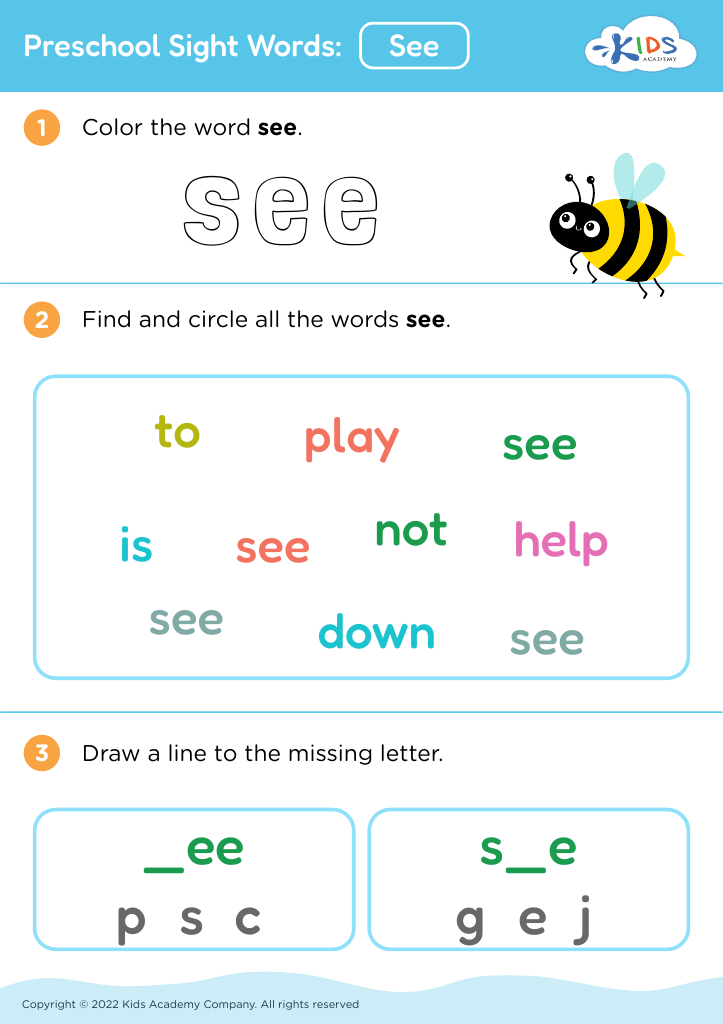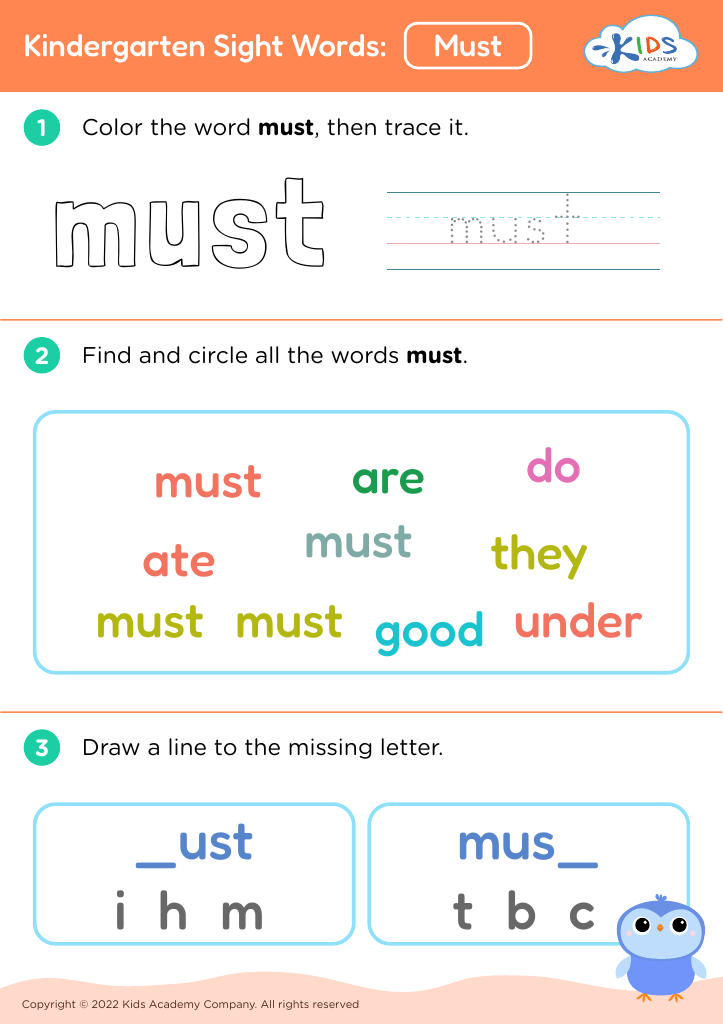Spelling practice Building Vocabulary Worksheets for Ages 3-7 - Page 2
43 filtered results
-
From - To
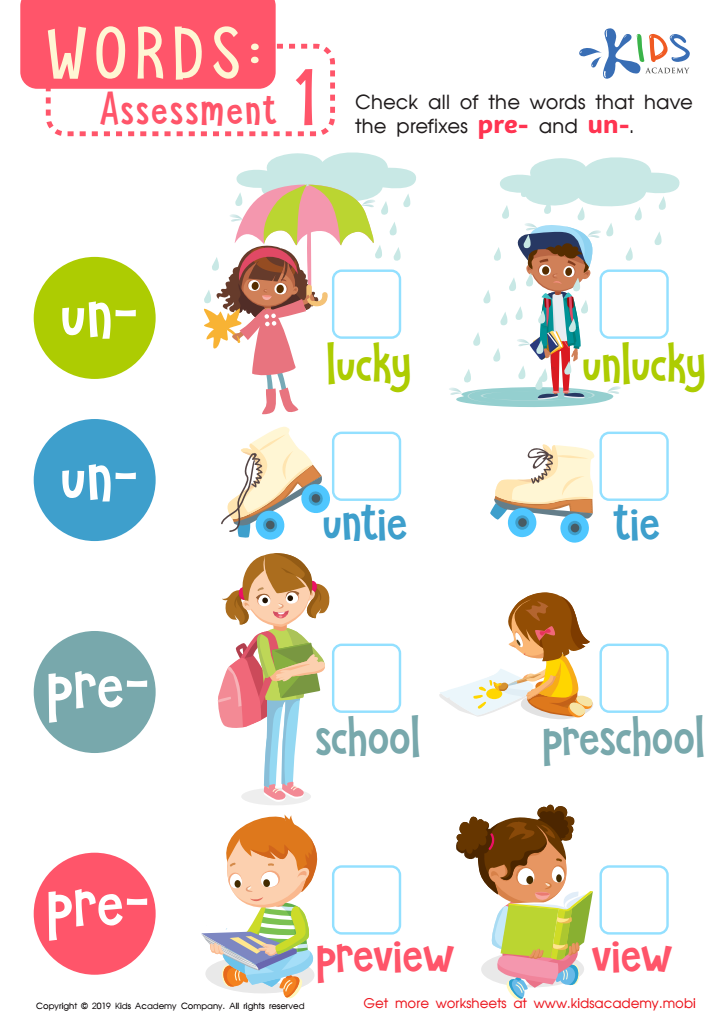

Words: Assessment 1 Worksheet
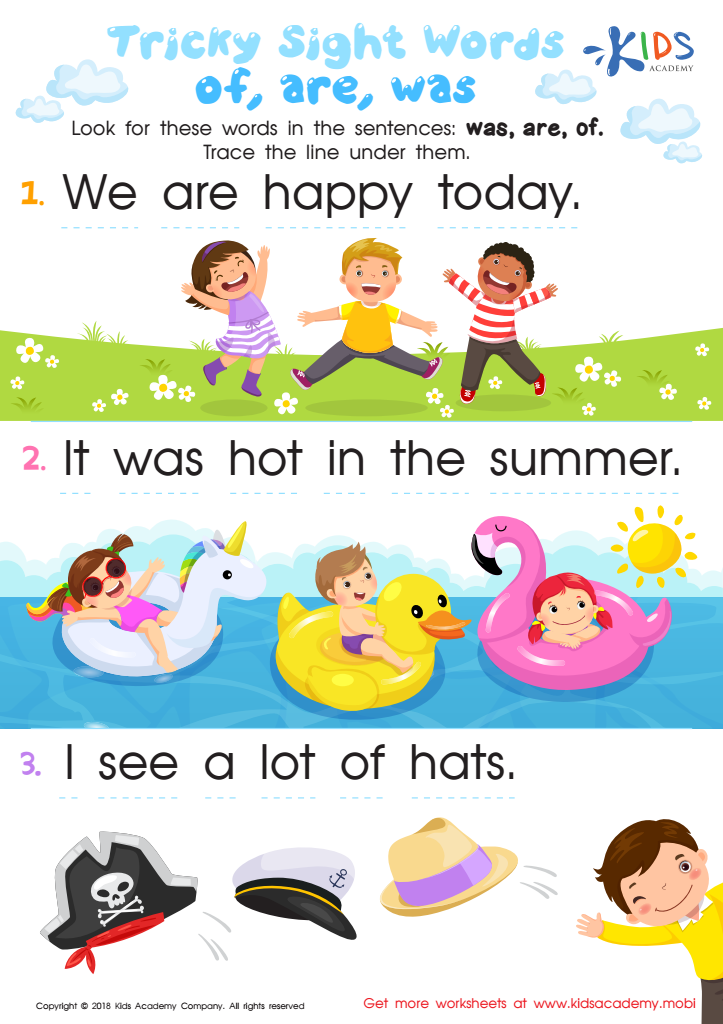

Tricky Sight Words Worksheet
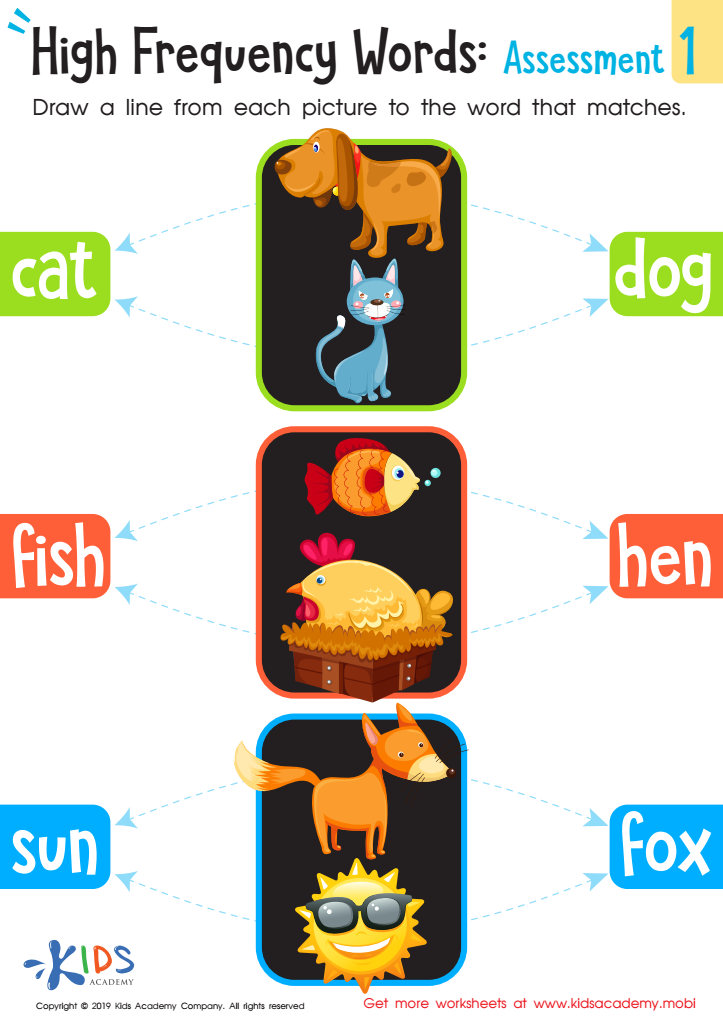

High Frequency Words: Assessment 1 Worksheet
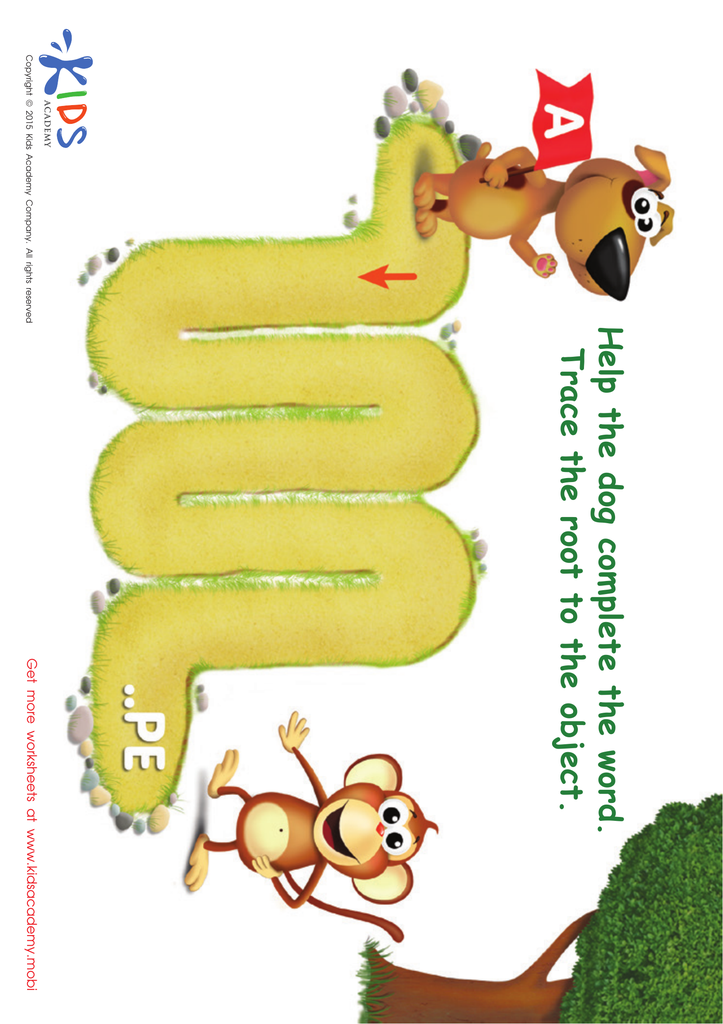

Long Vowel Sound A Worksheet Worksheet
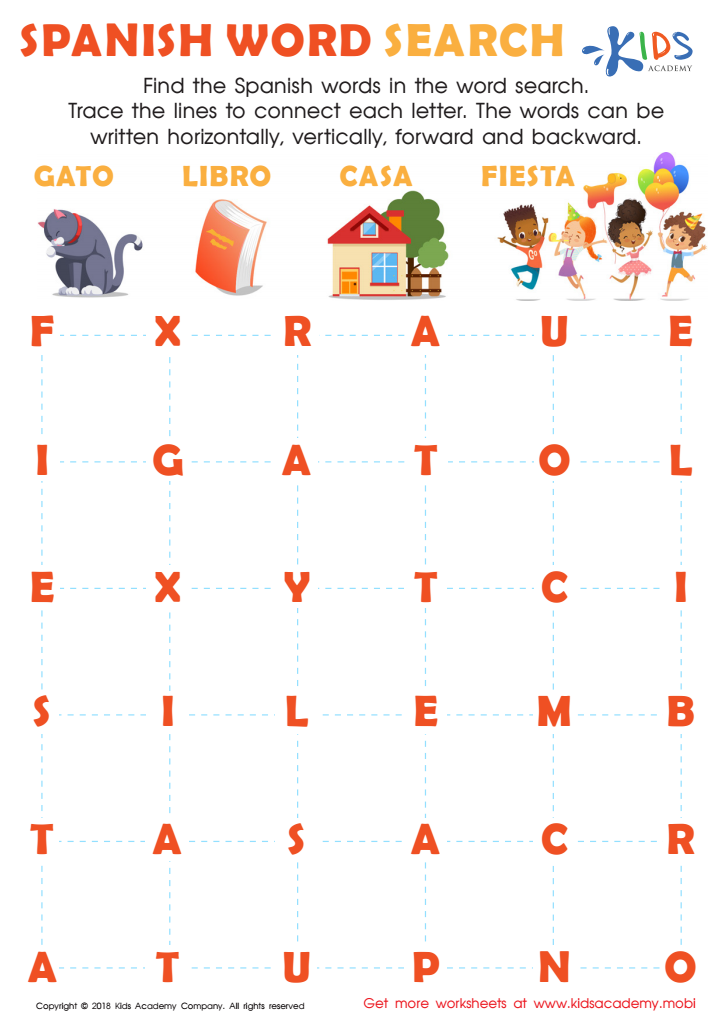

Spanish Word Search Worksheet
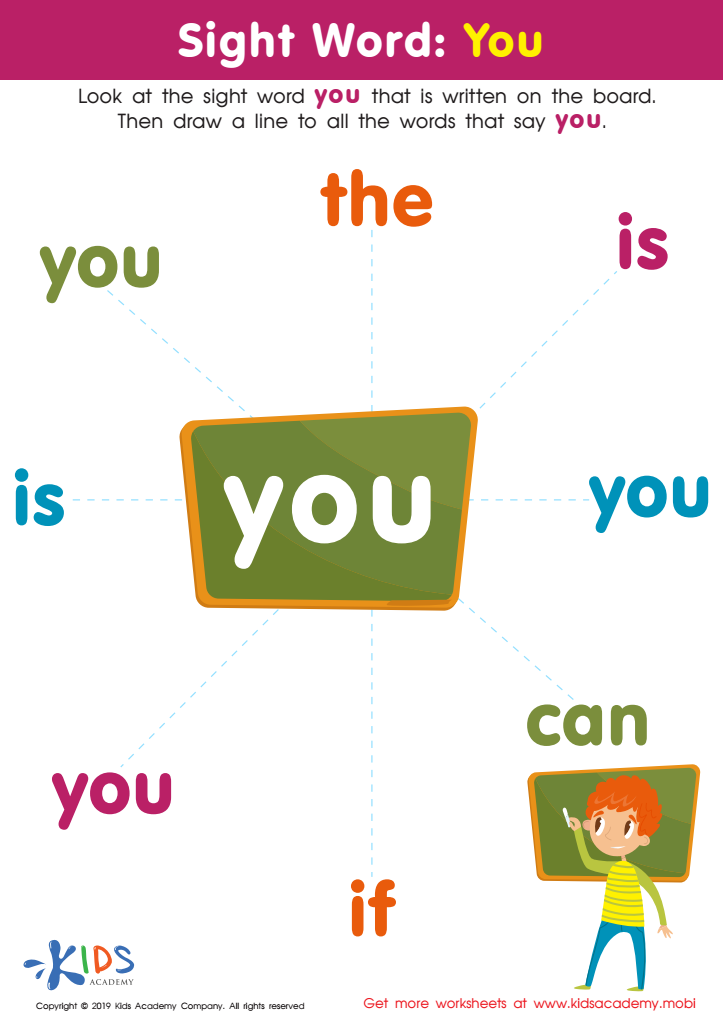

Sight Word You Worksheet
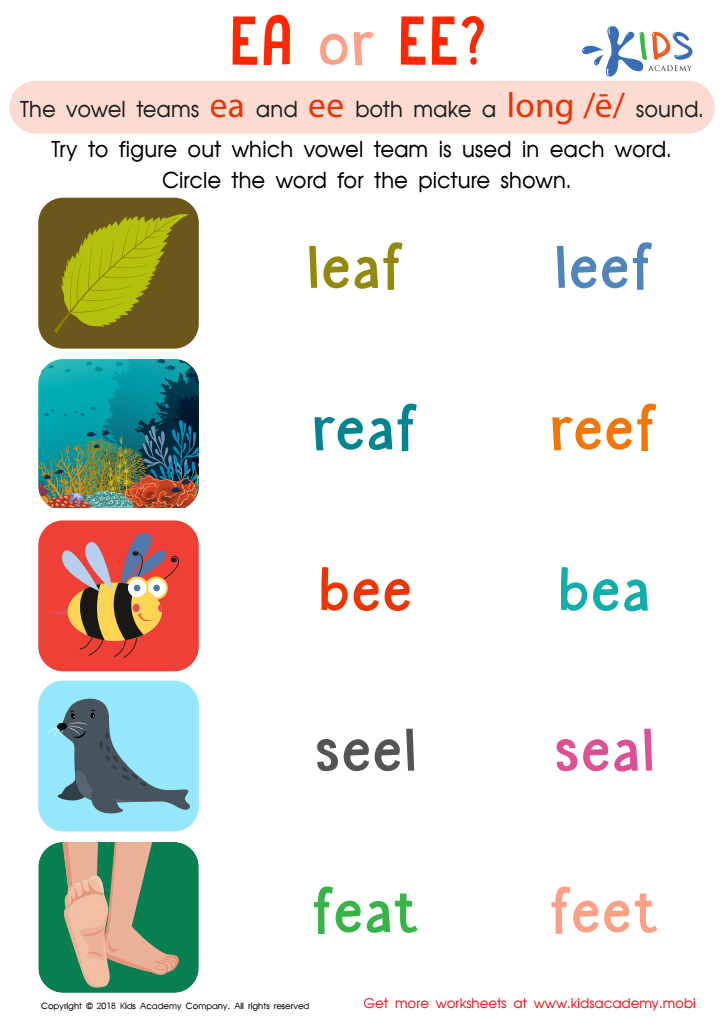

Reading: EA and EE Worksheet
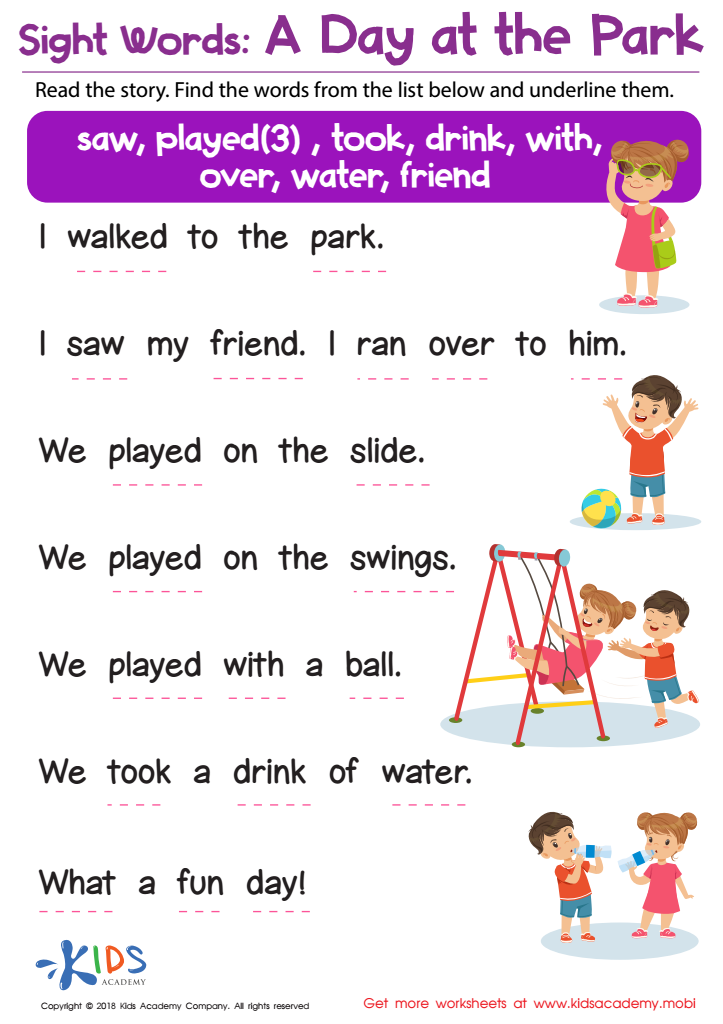

Sight Words: A Day at the Park Worksheet
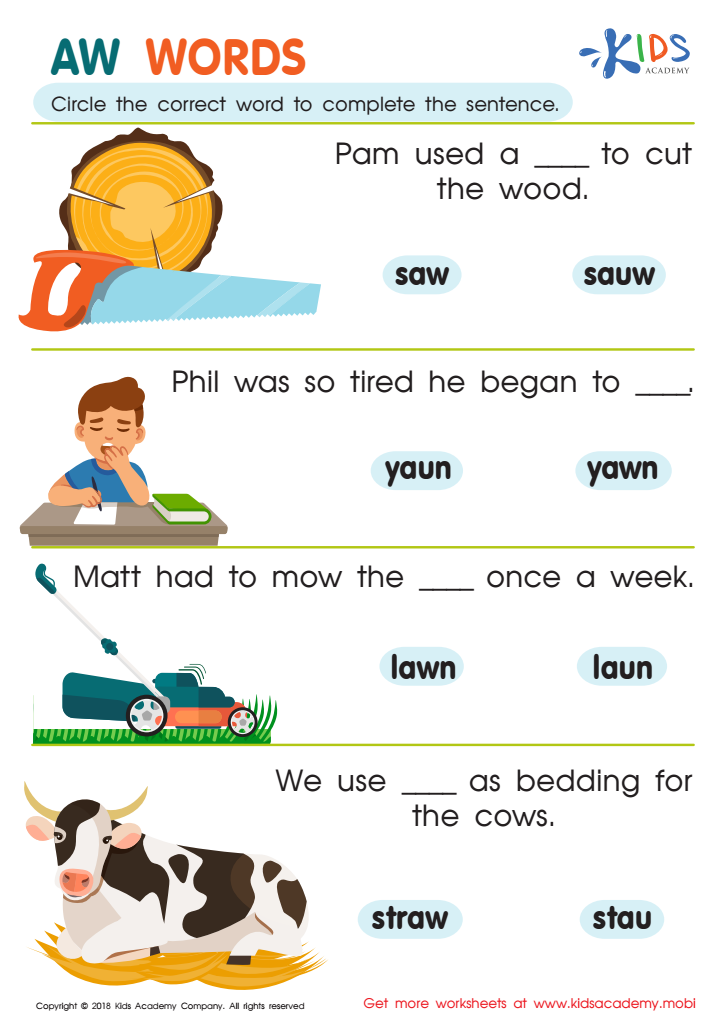

Reading: AW Words Worksheet


Phonics and Word Recognition: Assessment 1 Worksheet
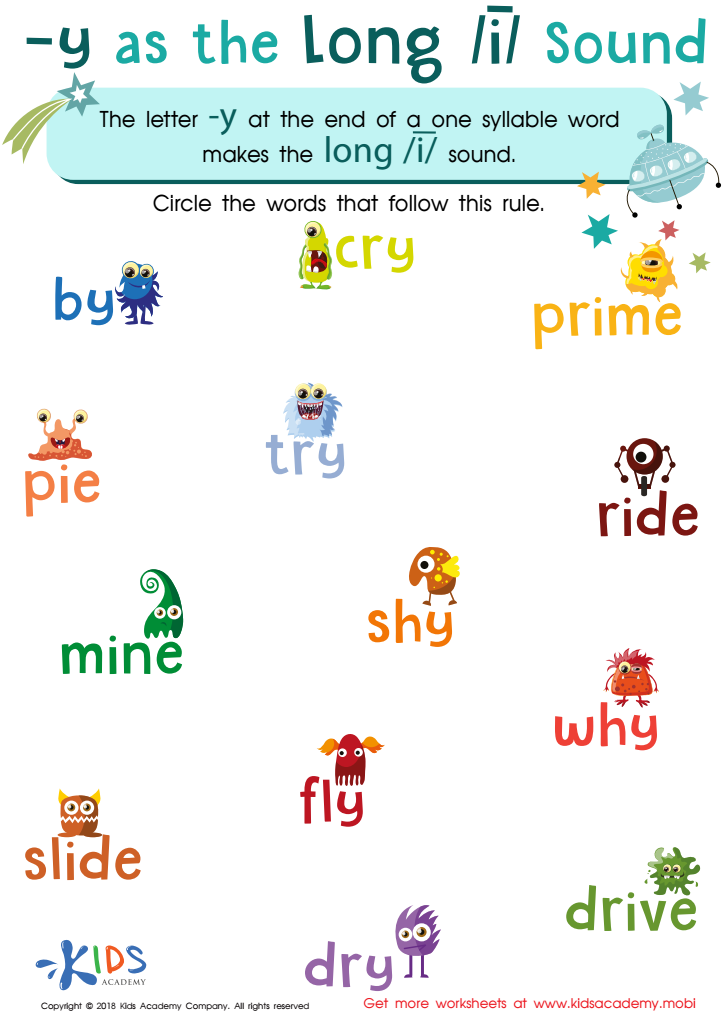

Reading: Y as Long I Worksheet
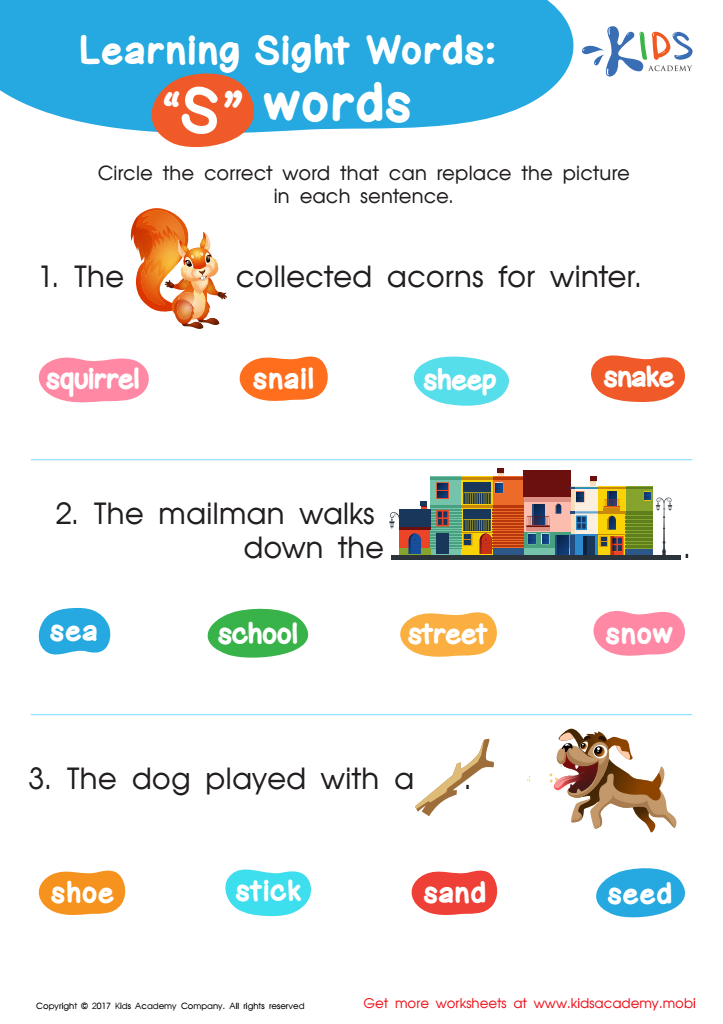

S Words Sight Words Worksheet
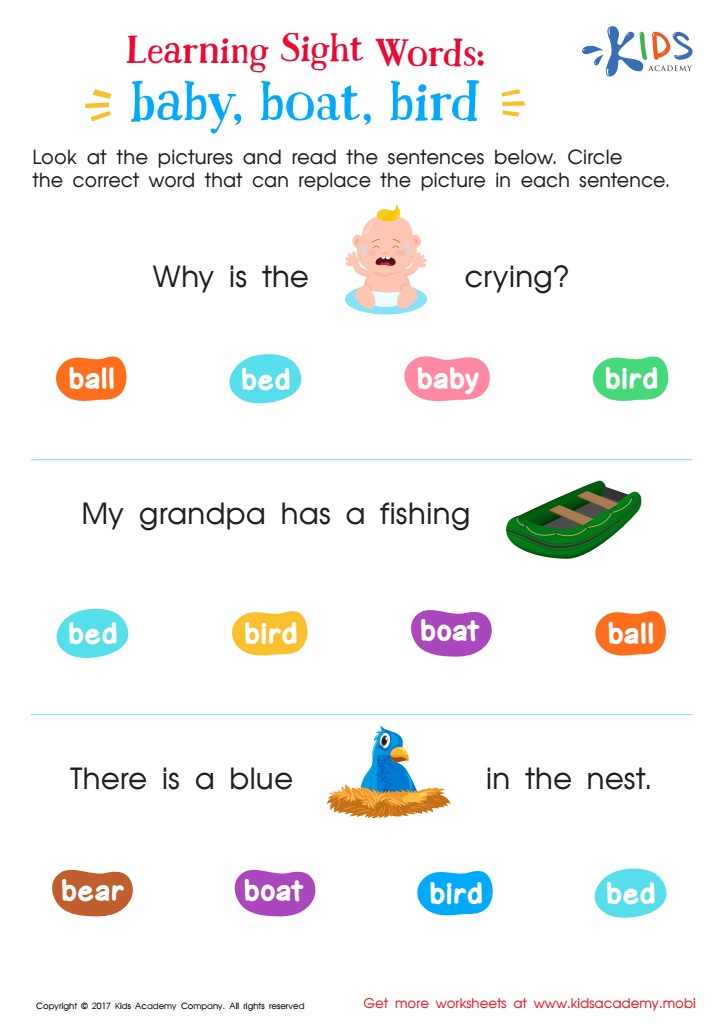

Baby, Boat, Bird Worksheet Sight Words Worksheet
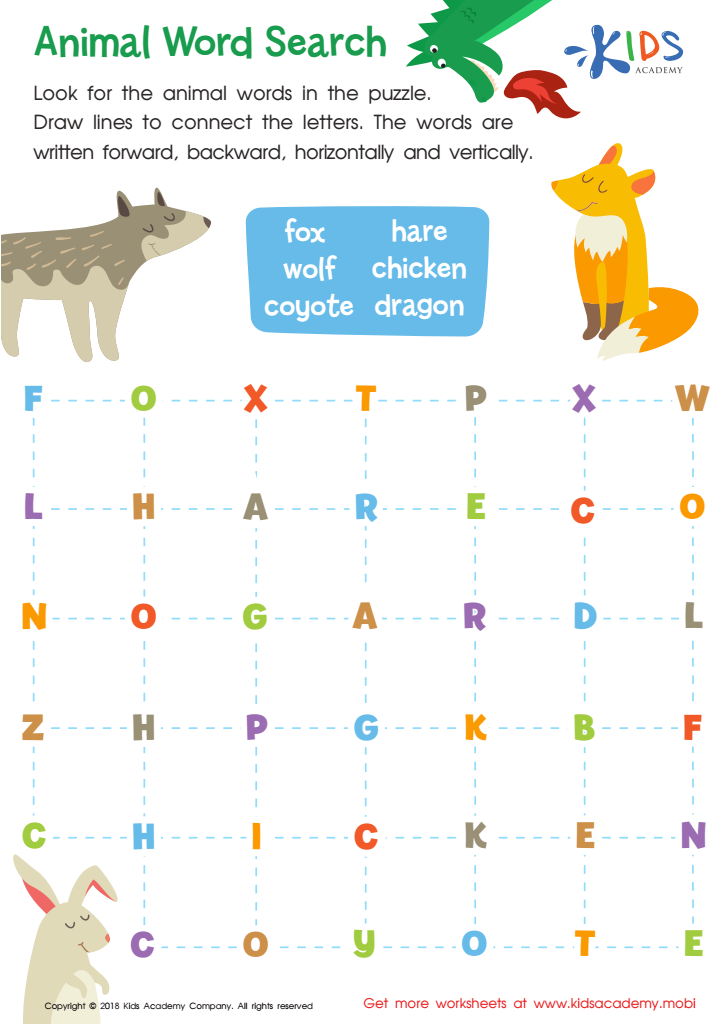

Animal Word Search Worksheet
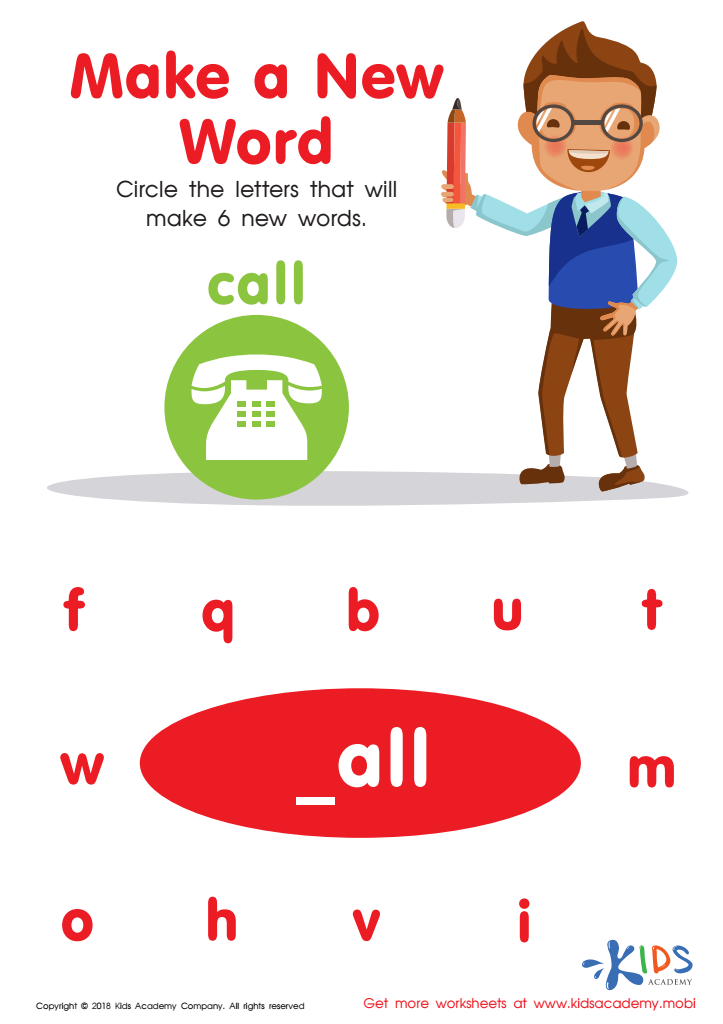

Make a New Word Worksheet
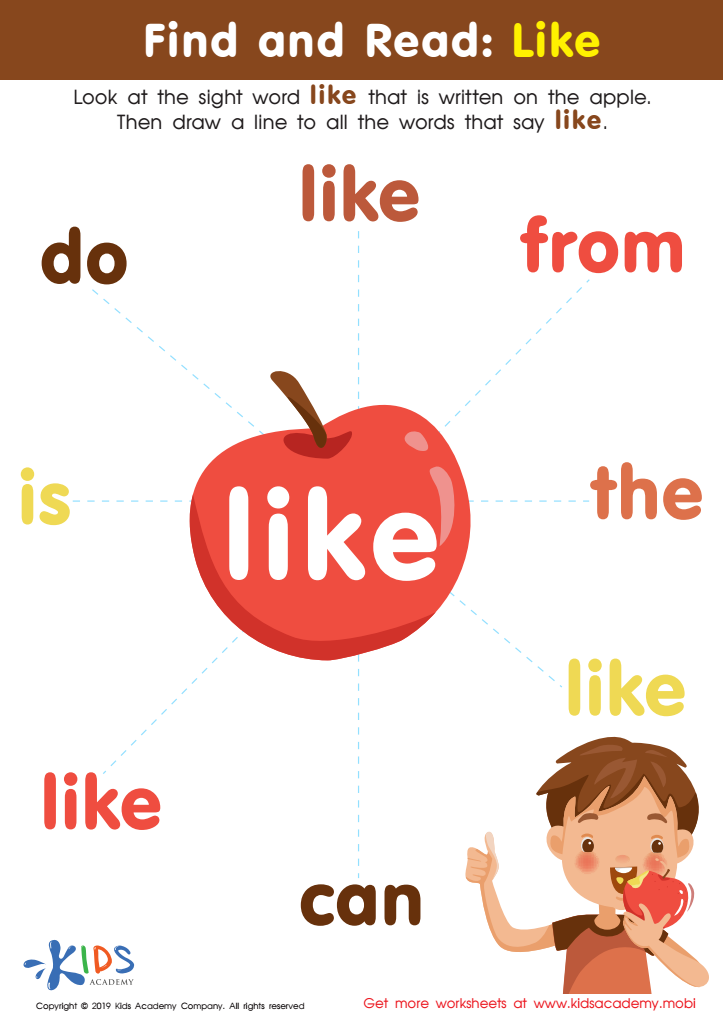

Find and Read: Like Worksheet
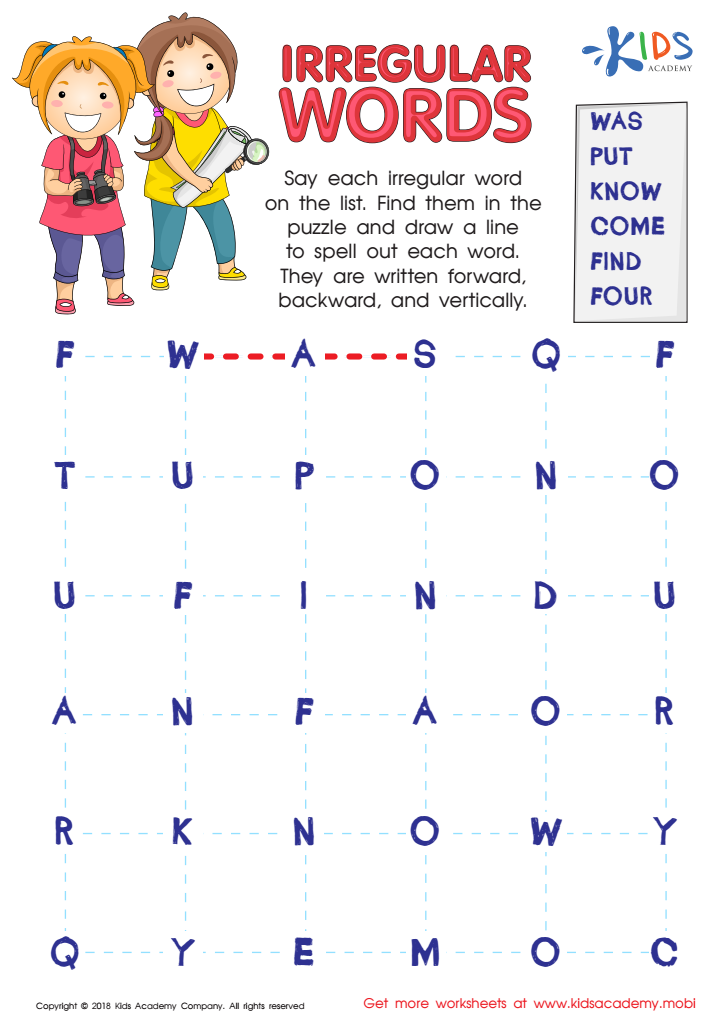

Irregular Words Worksheet
Parents and teachers should prioritize spelling practice and vocabulary building for children aged 3-7 because these foundational skills play a critical role in their overall language development and academic success. At this formative stage, children's brains are highly receptive to learning new words, sounds, and patterns. Engaging in spelling practice helps them understand the relationship between letters and sounds, which is essential for decoding words during reading. This phonetic awareness supports smoother reading experiences, enhancing comprehension and fostering a love for reading from an early age.
Moreover, an expanding vocabulary equips children with a richer language toolkit to express their thoughts, emotions, and ideas more clearly. This enhances their communication skills and confidence in social interactions. Vocabulary development is also closely linked to academic performance since a robust vocabulary facilitates better understanding of instructions, concepts, and subjects across different areas of learning.
Interactive and playful spelling and vocabulary activities can capture children's interest and make learning enjoyable. These practices promote cognitive development by challenging memory and reasoning skills. As such, incorporating spelling and vocabulary-building exercises into early childhood education not only boosts literacy but also sets the stage for lifelong learning and intellectual curiosity.
Ultimately, investing in these early skills paves the way for children’s future success, both academically and socially.
 Assign to My Students
Assign to My Students














